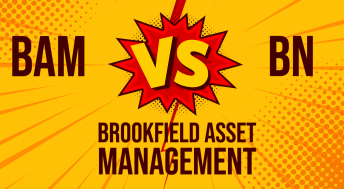There likely were a few disgruntled shareholders of Patheon Inc. (PTI/ TSX) in October 2009 when Lonza Group terminated its planned $710-million acquisition of the company. The proposed price? US$3.55 per share, a 25% premium on the $2.84 that Patheon was trading at the day before the deal fell through.
Having a takeover disappear is likely never much fun. But I recently had reason to wonder if those shareholders had held on. That’s because JLL Partners Inc. on Nov. 19 offered to buy Patheon for US$9.32 per share in cash. Four years later, 163% more in value and the deal looks done.
Maybe having a takeover fail is not so bad. With that in mind, let’s look at five prior collapsed deals and see how the targets are fairing nowadays.
Illumina Inc. (ILMN/Nasdaq)
Roche Holding AG in January 2012 offered US$6-billion, or US$51 per share in cash, for Illumina, a maker of integrated systems for the large-scale analysis of genetic variations and biological functions.
Illumina was not happy about the bid, and fought back hard. Roche terminated the deal in April 2012. Looks like the company was right to fight back: Its shares are now just under US$100, almost double what Roche wanted to pay. At Wednesday’s high of US$102.67, they were more than double the old takeover price.
Badger Daylighting Inc. (BAD/TSX)
Clean Harbours Inc. in April 2011 offered to buy Badger for $20.50 per share in cash. It was a friendly deal approved by Badger, but shareholders fought back and voted down the deal.
Today, it sure looks like Clean Harbours would have paid a bargain price. Badger this week traded at $84 per share, more than four times the proposed takeover price less than three years later. Badger, in the hydrovac industry, is up 169% this year on strong growth in its revenue and earnings.
Mart Resources Inc. (MMT/TSX-V)
Westoil Ltd. in August 2009 announced the $79-million acquisition of Mart in a cash bid of 14¢ per share. The deal fell apart 74 days later.
Today, Mart, an oil producer in Nigeria, sports a $458-million market cap and a $1.29 per share price. Interestingly, Mart’s annual dividend of 20¢ per share now exceeds the proposed takeover price of four years ago.
Yahoo Inc. (YHOO/Nasdaq)
In our most-famous example, Microsoft Corp. in February 2008 bid US$31 per share in cash and stock for Yahoo, a potential US$41-billion takeover. The deal was terminated after three months of wrangling. Microsoft in 2011 was widely rumoured to be back at the negotiating table for Yahoo, only this time at US$16.60 per share, reflecting lower prices after the financial crisis.
Today, though, is a different story: Yahoo shares — now trading near US$40 — are up more than 100% in the past year, and earnings growth is looking better. Instead of selling out, Yahoo has instead bought back lots of its own stock, including US$5.3-billion worth of shares since January 2012.
BlackBerry Ltd. (BB/TSX)
Alas, sometimes a failed bid means a lower price. Blackberry in late September received a friendly $9 per share cash bid from Fairfax Financial Holdings Ltd. and partners, only to see the bid collapse 42 days later.
Blackberry shares are now trading near their 15-year low in the low $6 range. Maybe, if shareholders are lucky, Blackberry shares years from now will be higher than the prior $9 bid.
Overall, however, the next time one of your companies receives a takeover bid, maybe you should pause first before jumping up and down with joy. You might — just might — be better off with no deal at all.
Peter Hodson, CFA, is CEO of 5i Research Inc., an independent research network providing conflict-free advice to individual investors (www.5iresearch.ca).




Comments
Login to post a comment.